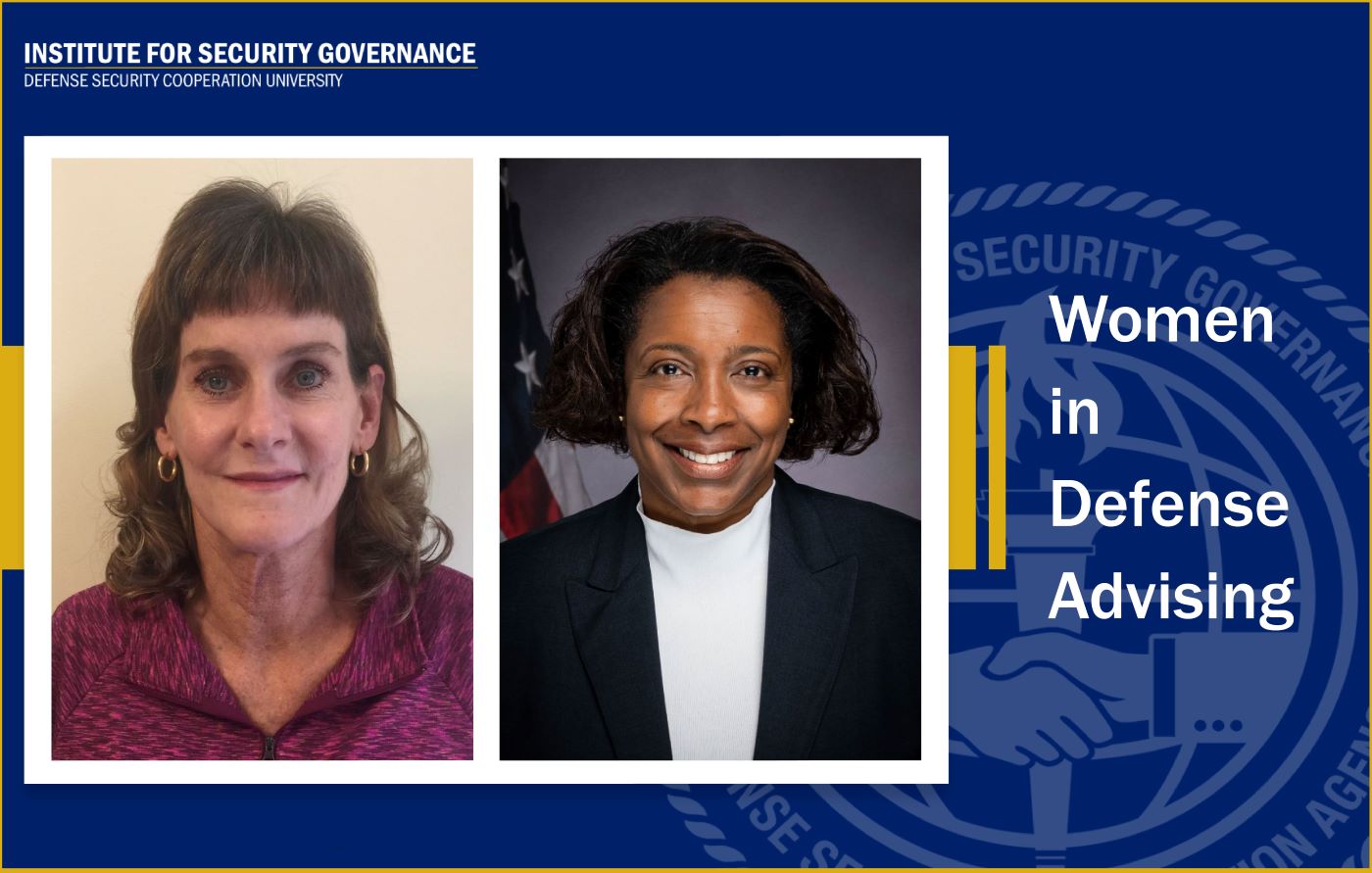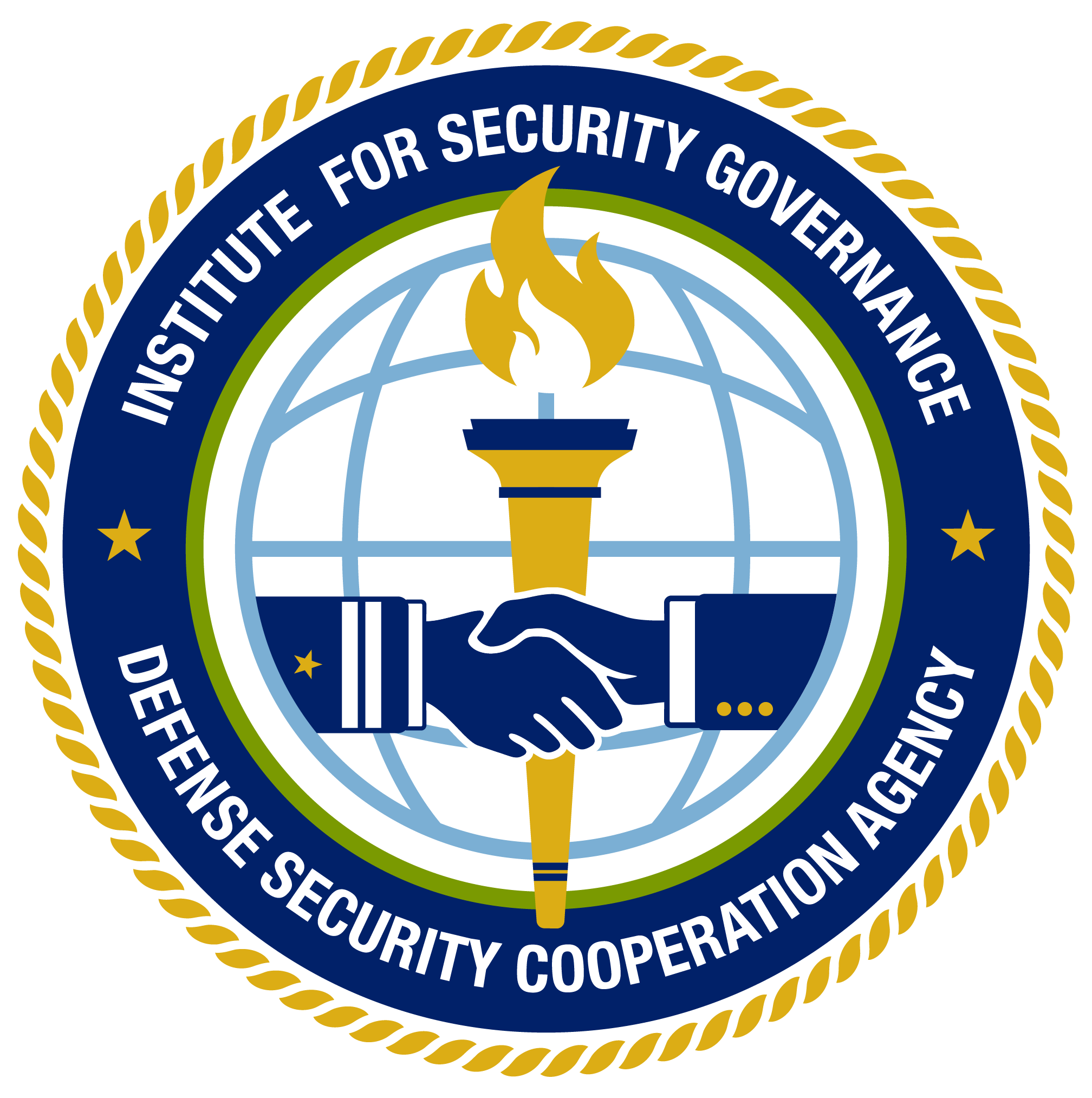WOMEN IN DEFENSE ADVISING: THE VALUE OF WOMEN IN BUILDING INSTITUTIONAL CAPACITY - Defense Security Cooperation University

Apr 10, 2023
WOMEN IN DEFENSE ADVISING: THE VALUE OF WOMEN IN BUILDING INSTITUTIONAL CAPACITY
Women are playing an increasingly influential role in U.S. defense and national security. Evidence of this can be found right here at the Defense Security Cooperation University’s Institute for Security Governance (ISG). Two notable examples include Ms. Karen Bonaby and Ms. Kelly Peters – highly effective and experienced Resident Advisors, who recently shared some of their insights and experiences that highlight the value of including women in defense advising.
In 2020, Ms. Karen Bonaby was the first Resident Advisor to be detailed to the Republic of Moldova. In 2021, Ms. Peters was detailed to Latvia as a Resident Advisor, having served before that as a Resident Advisor in Afghanistan. Each of these women brought impressive credentials and plethora of relevant experience to their Resident Advisor roles.
ISG’s Resident Advising Program (also known as Ministry of Defense Advisor Program – MoDA) provides trained Department of Defense advisors to allies and partners in support of global United States Security Cooperation (SC) efforts. As SC professionals, Resident Advisors (MoDAs) are informed by U.S. national security objectives and employ a broad range of SC resources. A trained Resident Advisor is a subject matter expert who enable enduring, tailored solutions that build the defense-related institutional capacity of our partners, enhancing their security and ability to operate with U.S. forces.
Resident Advisors (MoDAs) receive comprehensive, tiered training to build advisory and capacity building skills as well as country study, cultural awareness, and language instruction; mission preparation; and operational readiness training. However, from Ms. Bonaby perspective, it was her experience as an officer in the U.S. Navy – and often as the only female, African American – that provided her with a strong foundation for being comfortable in uncomfortable situations as a new Resident Advisor. She explains,
“I quickly learned finding common ground was the first step in building a cohesive team. This lesson was particularly helpful going into the Resident Advisor role in a former Soviet Union country. Being able to find commonalities with individuals helped me communicate with the Moldova Army Leadership and finding similarities with those who do not appear to have any in common with me at first glance.”
Ms. Bonaby’s found great success and pride in her work as a Resident Advisor, and with the George C. Marshall European Center for Security Studies, to bring tailored seminars to senior civilian leaders in Moldova. Over an 18-month period, she worked with the Ministry of Defense (MoD) and the U.S. Embassy Political/Economic Section to setup multiple events that enabled parliamentarians and government ministry staff to meet each other for the first time and enhance their understanding of elected leadership’s role in security. Through the relationships she cultivated over time, she was able to shape a substantive, one-day seminar in Garmisch, Germany that led Moldova to update its National Security Strategy.
In her role as a MoDA in Latvia, Ms. Peters started to see results within the first eight months of visiting sites, attending meetings, and providing feedback and ideas for ways to solve problems working closely with the Latvian MoD and the Latvian National Armed Forces (LNAF). She often found brainstorming with her LNAF counterparts on her office whiteboard to discover process changes and solutions led to the discovery of partner-owned process changes and solutions. Ms. Peters recounts that Latvia's use of "Emergency Essential Civilians to conduct strategic logistics operations during crisis situation" was one such scenario.
Resident Advisors have a complementary and unique role in the Security Cooperation Enterprise as the professionals who, by their daily proximity to the partner and their expertise, are able to strengthen relationships and shape partner-desired outcomes, which are also informed by U.S. national security goals.
When the Resident Advisor program began, it was designed to leverage the specialized capabilities of DoD civilians and provide the reach-back support and cultural, operational, and advisor training that would ensure appropriate and effective in-country advising. Ms. Peters found she had earned Latvian MoD/LNAF trust when several of her recommendations were implemented such as using Emergency Essential Civilians instead of relying solely upon Military personnel to conduct strategic logistics operations during crisis; and incorporating and utilizing “peacetime” state-level procurement organizations during crisis situations. In another instance, the Deputy Minister of Defense and the MoD Under Secretary for Logistics requested that she provide courses of action and recommendations with regard to a logistics-related Inspector General audit as well as an M109 sustainment (spares/maintenance) approach they were considering pursuing.
Both women spoke to the exciting professional opportunities and long-lasting cultural experiences they were privy to as ISG Resident Advisors. What’s more, they both expressed their encouragement for others to consider applying for a Resident Advisor position and stressed the importance of increasing the number of women advisors in particular.
Since 2011, the United States has worked to ensure women become critical actors and provide meaningful participation in major national security and defense priorities at home and abroad, based on overwhelming evidence that shows that gender plays an important role in governance, conflict resolution, peace and security operations, and countering violent extremism. ISG boasts a trained, effective cadre of Resident Advisors deployed around the globe. In building this cadre, it has upheld the Women, Peace, and Security principles outlined by the U.S. Government, for the benefit of the United States and its allies.
To learn more about becoming a Resident Advisor (MoDA), read ISG’s Resident Advisor Primer or explore the open Resident Advisor positions on the ISG Working With Us webpage.

